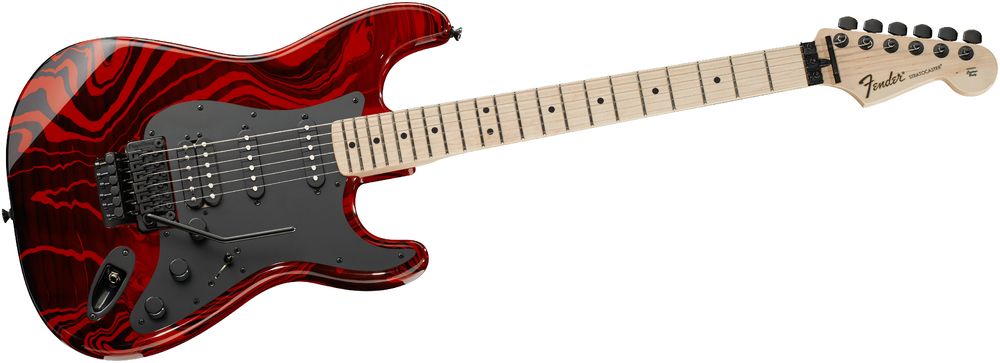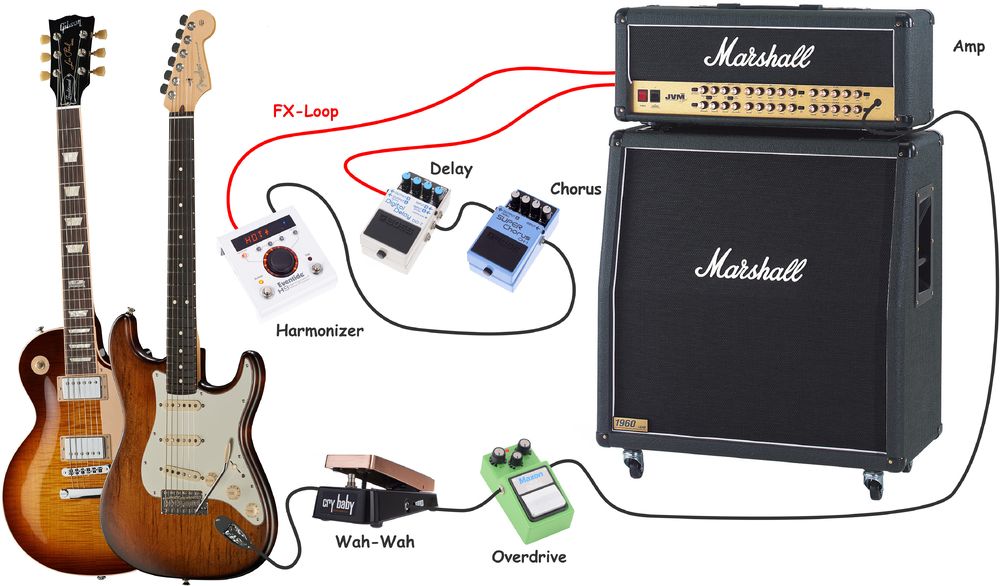5. General Purpose Setup
Many guitarists, whether playing in covers bands or for musical theatre for instance, have to cover a wide variety of styles convincingly, from rock to jazz and blues to reggae - a versatile setup is therefore required:
Guitar
The best bet here is to go for a guitar that, however good, is not too distinctive. This generally rules out semi-acoustics or highly individual guitars such as Rickenbackers. A Superstrat is worth considering, particularly one with an H-S-H pickup configuration (i.e. a humbucker at the neck position as well as at the bridge). This type of guitar can be used to good effect in many styles, from heavy metal to fusion and jazz - the pickup switching options of modern designs from the likes of PRS and Parker are also worth considering, as they often include interesting and powerful coil split/tap options enabling their humbuckers to be used alternately as single coils.

Modelling guitars are a recent innovation but are becoming increasingly worthy of consideration. These use physical modelling techniques running on an onboard chip to build a sound from scratch, enabling a single guitar to contain models of various Strats, Teles, Les Pauls, semi-acoustics and even acoustics, banjos and other instruments. This technology was pioneered by Line6, and their Variax guitars lead the field, though other companies such as Alesis have recently made inroads, and Rolands V-Guitar systems represent an interesting alternative approach to guitar modelling. Some purists find the results of modelling unconvincing, but the option is certainly worth taking seriously.
Amp
A 3-channel amp providing clean, crunch and lead sounds is the ideal choice for this type of player. A relatively small yet powerful combo is probably the best option for fitting into tight stage setups, and transporting without a road crew! Modelling amps, like guitars, are an attractive proposition as they aim to recreate almost any amp sound, often include a selection of effects, and can be programmed to switch instantly between very different sounds via a single press of a footswitch, for example from distorted Marshall stack with delay and chorus to small clean combo with phasing.
Effects
Versatility is the name of the game here, and a broad selection of effects is ideal. Rather than carrying dozens of pedals on a heavy pedal board, a multi-fx unit is a convenient way to create many pre-programmed sounds, which can be saved as presets for instant recall. Most multi-FX units contain all the major guitar FX types - chorus, flanger, delay, reverb, phasing, octave, pitch shift, and several types of overdrive and distortion. Many floor-based units also include an assignable volume/wah pedal.



